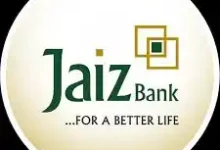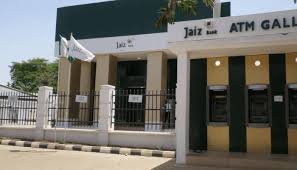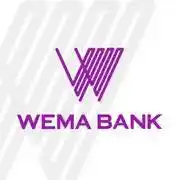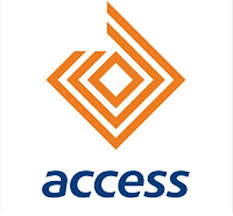Daily Bank Transfer Limit for Corporate, Current and Savings Account in Nigeria
Savings Bank Account Transfer Limit in Nigeria
Bank transfers in Nigeria are a common method of sending and receiving money between bank accounts. They allow individuals and businesses to transfer funds electronically without the need for physical cash or cheques. However, in today’s article, I will enlighten or make you knowledgeable of the “Daily Bank Transfer Limit for Corporate, Current and Savings Account in Nigeria”.
That is primarily what this article is about but yet, we still have a long way to go as I’ll also make you knowledgeable of some related topic that you may be searching for.
Before going to the main topic, let me share with you some key points to know about banks in Nigeria today:
Banks in Nigeria
Nigeria has several commercial banks, both local and international, that offer banking services, including bank transfers.
Some of the popular banks in Nigeria include First Bank of Nigeria, Access Bank, Zenith Bank, Guaranty Trust Bank (GTBank), and United Bank for Africa (UBA).
Types of Bank Transfers
In Nigeria, there are two primary types of bank transfers: intra-bank transfers and inter-bank transfers.
Intra-Bank Transfers
This type of transfer refers to sending money between two accounts within the same bank.
For example, if both the sender and recipient have accounts with Zenith Bank, an intra-bank transfer can be initiated to move funds from one account to another within Zenith Bank.
Inter-Bank Transfers
Inter-bank transfers involve sending money between two different banks.
For instance, if the sender has an account with First Bank and wants to transfer money to a recipient with an account at UBA, an inter-bank transfer is required.
Methods of Bank Transfer
Nigerian banks offer various methods to initiate bank transfers:
Online Banking
Most banks provide internet banking platforms where customers can transfer funds electronically.
This usually involves logging into the bank’s web portal or mobile app and initiating the transfer by providing the recipient’s bank details and the amount to be transferred.
Mobile Banking
Many Nigerian banks offer mobile banking applications that allow customers to perform various banking activities, including transfers, using their smartphones.
These apps are convenient and user-friendly.
Bank Branches
Customers can also visit their bank’s physical branch to request a bank transfer.
They will need to fill out a transfer form with the necessary details, such as the recipient’s account number, bank name, and branch.
Bank Transfer Charges
Nigerian banks usually charge a fee for bank transfers.
Read: Top 10 Online Loans with Weekly or Monthly Payments in Nigeria 2023
The fee usually varies depending on the bank and the transfer method used. Intra-bank transfers are often cheaper than inter-bank transfers.
Transfer Times
The time it takes for a bank transfer to be processed also depends on the bank and the current flow of the network.
Intra-bank transfers are generally faster and can be processed almost instantly.
Inter-bank transfers may take longer, usually within one to three business days, depending on the banks involved.
Bank Transfer Limits
Nigerian banks often impose limits on the amount that can be transferred per transaction as directed by the CBN.
These limits can base on the type of account and customer relationship.
Central Bank Regulations
The Central Bank of Nigeria (CBN) governs and regulates the banking sector in Nigeria.
It sets policies and guidelines that banks must adhere to, including regulations on bank transfers and electronic payments.
Daily Bank Transfer Limit for Corporate, Current and Savings Account in Nigeria

It is usual that corporate accounts have higher transfer limits compared to individual accounts, as they are designed to cater to the financial needs of businesses and organizations however, according to the Nairametrics statistics posted on 2022-06-03 the Central Bank of Nigeria (CBN) raises the online transfer N25 million and 250 Million for individuals and companies respectively.
Read: NiceNaira Login With Phone Number, Email Address, Online Portal, Website
The Central Bank of Nigeria has raised the limit for ‘Highly Secured Online Funds Transfer from N100 million to N250 million for Companies and from N10 million to N25 million for individuals.
Remember that banking regulations and policies can change over time, so it’s advisable to reach out to your bank directly for the most accurate and current information regarding the daily transfer limit for your corporate account.
Daily Bank transfer limit for Saving Accounts in Nigeria
The daily bank transfer limit for a savings account in Nigeria can vary depending on the bank and the specific terms and conditions associated with the account.
From research, I can see each bank has its own transfer limit. For instance, according to the information gotten from the Union Bank FAQs, the Union Bank transfer limit is N25,000,000 only.
According to the new CBN cashless policy, the general daily transfer limit for Savings accounts in Nigeria is N25,000,000 only.
However, to determine the daily bank transfer limit for your specific savings account, I’ll recommend you contact your bank directly.
The bank’s customer service or a representative at your local branch will be able to provide you with accurate and up-to-date information regarding the transfer limits applicable to your savings account.
Daily Bank transfer limit for Current Accounts in Nigeria
Current accounts are basically designed for businesses and organizations, offering more flexibility and higher transaction limits compared to savings accounts.
I have gone through thorough research to find out the daily bank transfer limit for the current account in Nigeria 2022 but unfortunately, there seems to be no specific information regarding the current account transfer limit.
According to the new CBN cashless policy, the general daily transfer limit for Current accounts in Nigeria is N25,000,000 only.
But for you to determine the daily transfer limit for your current account, it’s more recommended to get in touch with the bank either by calling their customer care or visit their office location near you.
Daily bank transfer limit for Corporate Accounts in Nigeria
There’s no specific information regarding the daily bank transfer limit for corporate accounts in Nigeria.
Read Also: How To Make Money Online Trading Gift Cards – Buy and Sell Gift Cards Online
According to the new CBN cashless policy, the general daily transfer limit for Company and Corporate accounts in Nigeria is N250,000,000 only.
It’s advisable to visit your bank branch or call their customer care to get up-to-date information on the daily transfer limit for corporate accounts in Nigeria.
Bank’s transaction limit per day in Nigeria
In late 2022, the central bank of Nigeria gave order to banks drastically reduce the daily transactions to N20,000 which took effect in less than 24 hours. However, that was temporal and the banks now follow their old directive.
Below are examples of banks’ transaction limits per day in Nigeria in 2023:
ATM Withdrawals: Banks in Nigeria often set a daily limit on ATM cash withdrawals. This limit usually ranges from N100,000 to N500,000, depending on the bank and the account type.
Point of Sale (POS) Transactions: The daily limit for POS transactions can vary between N100,000 and N1,000,000, depending on the bank and the account type.
Some banks may have different limits for online and offline POS transactions.
Mobile Banking and USSD Transactions: Nigerian banks commonly set a daily limit for mobile banking and USSD transactions.
This limit can range from N100,000 to N1,000,000, depending on the bank and the account type.
However, some banks may have higher limits for specific transaction types, such as bill payments or airtime purchases.
Online Banking Transfers: The daily transfer limit for online banking transfers can vary significantly, depending on the bank and the type of account.
It can range from the sum of N500,000 to N25,000,000 or even higher (N250,000,000) for corporate accounts.
Individual or savings accounts generally have lower limits as you might have known already.
Inter-Bank Transfers: The daily limit for inter-bank transfers also vary between N500,000 and N25,000,000, depending on the bank and the account type.
You May Like: Zenith Online Banking and Mobile Banking App Login With Phone Number, Email, Online Portal, Website
Some banks may require additional authentication or approval for higher-value inter-bank transfers.
CBN daily transfer limit
According to CBN, the new directive which was made known through a letter addressed to all banks, and signed on Wednesday by the Director of Banking Supervision, Haruna Mustafa, now allows individual bank users to withdraw up to N500,000 weekly and organizations, N5 million weekly.
The old limit was N100,000 only for individuals.
The CBN daily limit for inter-bank transfers also varies between N500,000 and N25,000,000, depending on the bank and the account type. N25,000,000 for Saving Accounts and N250,000,000 for corporate accounts.
However, on request, customers can increase their transfer limit.
Bank transfer limit in Nigeria
As explained earlier, the banks have gone back to their former operation system after the banks were ordered to allow maximum daily transactions per account daily.
However, after the “no cash problems”, banks now allow users to carry out transactions in thousands and millions.
The Banks daily limit for transfers also varies between N500,000 and N25,000,000, depending on the bank and the account type. N25,000,000 for Saving Accounts and N250,000,000 for corporate accounts.
Cash withdrawal limit from banks per day in Nigeria
The cash withdrawal limit from banks per day in Nigeria now ranges from N100,000 to upward depending on the account type.
But not that “corporate and current” accounts usually have higher transaction limits than savings accounts.
CBN daily transfer limit 2023
Each customer can now withdraw or transfer up to 5 million weekly as per the information gotten from research.
The old directive limit was N100,000 only.
The CBN daily limit for inter-bank transfers also varies between N500,000 and N25,000,000, depending on the bank and the account type. N25,000,000 for Saving Accounts and N250,000,000 for corporate accounts.
Bank to bank transfer limit in Nigeria
In general, for saving also known as individual accounts, the daily transfer limits for bank-to-bank transfers in Nigeria ranged from N500,000 to N25,000,000.
Some banks may have lower or higher limits based on their specific policies and the type of account.
For corporate accounts, the bank-to-bank transfer limits are usually higher compared to individual accounts.
What is the transfer limit for Savings account in Nigeria

It has been stated earlier that the transfer limit for a savings account in Nigeria will depend on the bank.
However, the transfer limit for savings accounts in Nigeria usually ranges from N100,000 to N25,000,000.
What is the limit of money transfer in saving account?
The limit of money transfer in a savings account ranges from N100,000 to N25,000,000 depending on the bank.
What is the new CBN Transfer limit?
Individual customers can withdraw and or transfer up to 5-25 million naira and up to 250 million naira for companies.
Is there a limit to bank transfers in Nigeria?
Yes, there are limits to bank transfers in Nigeria. These limits are set by various factors, including the Central Bank of Nigeria (CBN) and individual banks.
The purpose of these limits is to ensure the security and stability of the banking system and to prevent fraudulent activities.
What is GTB daily transfer limit?
The Gtb daily transfer limit is limited to five million Naira while for other banks may be lower or higher.
Cash withdrawals on the other hand are limited to a hundred and fifty thousand Naira(150,000).
The GTB daily limit for inter-bank transfers also varies between N500,000 and N25,000,000, depending on the bank and the account type. N25,000,000 for Saving Accounts and N250,000,000 for corporate accounts.
What is the maximum Transfer limit per day?
The maximum transfer limit per day usually varies depending on the bank.
However, the maximum transfer limit per day is N25,000,000 for electronic fund transfers, including inter-bank transfers, mobile banking transfers, and online banking transfers.
For corporate and current accounts, the maximum transfer limits are generally higher (N250,000,000) compared to individual accounts. The specific limits for corporate accounts can vary depending on the bank, the type of account, and the business relationship with the bank.
It is advisable to consult with your bank directly to determine the maximum transfer limits applicable to your corporate or current account.
What is the limit of GT Ussd transfers?
GTBank which is one of Nigeria’s most innovative commercial banks has raised the bar on USSD by setting transaction limits at N500,000, said a source close to the matter.
The new limit means that customers are able to increase their transactions up to N500,000 from their usual N200,000.
This limit is applied to transfers made using the GTBank USSD code (*737#) on mobile devices.
However, you need to keep in mind that at any time banking regulations and policies can change.
What is the limit of GT Bank online payment?
The limit for online payments through GTBank’s Internet Banking platform usually ranged from a few thousand to N25,000,000 per transaction for individuals and N250,000,000 for companies, depending on the type of account and the customer’s relationship with the bank.
Wrapping Up
To wrap it up, there are limits associated with bank transfers and online payments in Nigeria.
The specific limits depend on factors such as the type of account, transaction method, and the bank’s policies.
While the Central Bank of Nigeria (CBN) sets certain guidelines, individual banks may have their own limits in place.
The daily transfer limits for individual bank accounts in Nigeria, as set by the CBN range from N100,000 to millions. However, specific banks may have different limits.
For example, GTBank had an N500,000 limit for USSD transfers and varying limits for online payments depending on the platform used.







